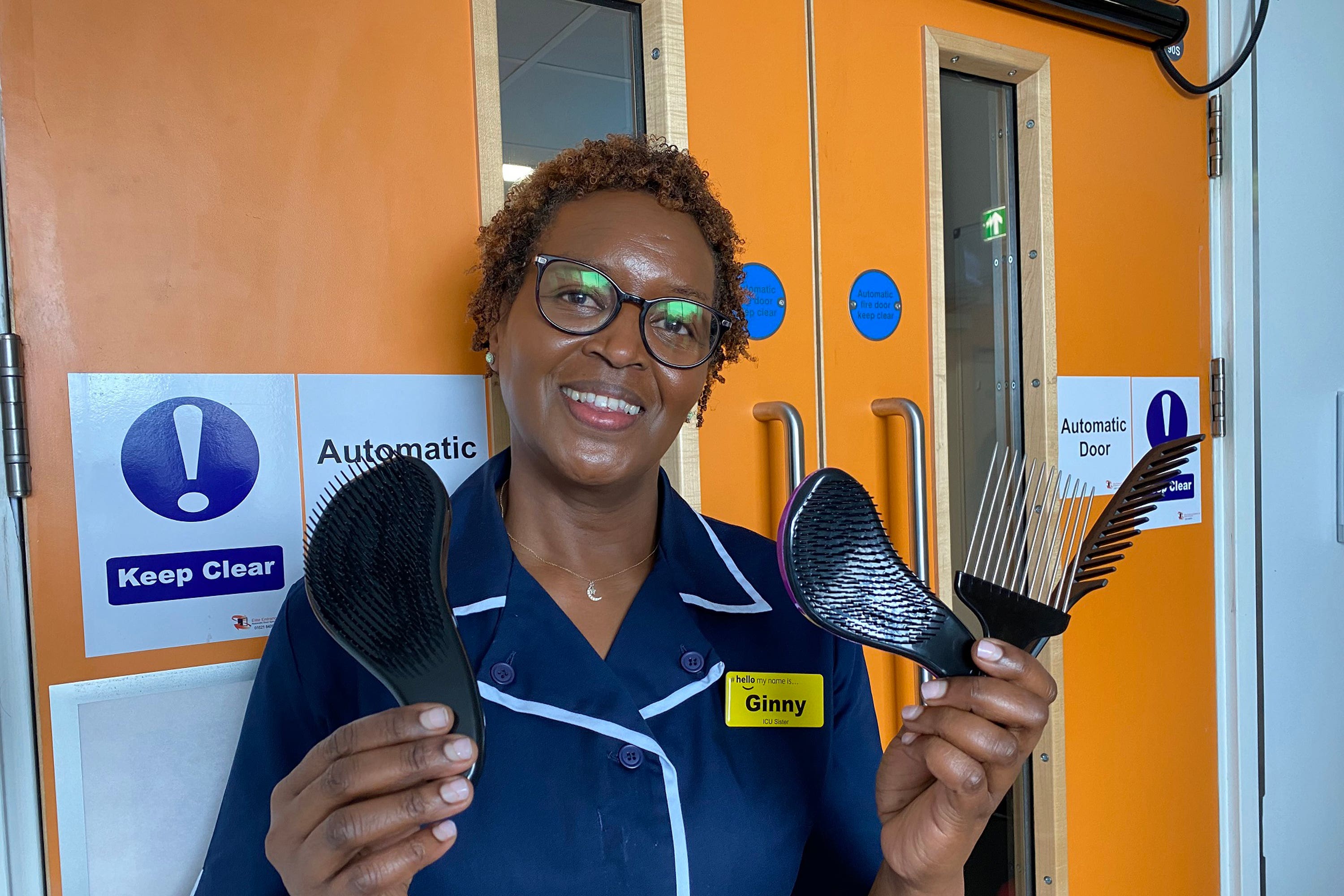Meet the intensive care nurse raising morale for patients with hair and skincare treatments
Ginny Wanjiro wanted to share her knowledge and improve patient wellbeing. By Katie Wright.

Your support helps us to tell the story
From reproductive rights to climate change to Big Tech, The Independent is on the ground when the story is developing. Whether it's investigating the financials of Elon Musk's pro-Trump PAC or producing our latest documentary, 'The A Word', which shines a light on the American women fighting for reproductive rights, we know how important it is to parse out the facts from the messaging.
At such a critical moment in US history, we need reporters on the ground. Your donation allows us to keep sending journalists to speak to both sides of the story.
The Independent is trusted by Americans across the entire political spectrum. And unlike many other quality news outlets, we choose not to lock Americans out of our reporting and analysis with paywalls. We believe quality journalism should be available to everyone, paid for by those who can afford it.
Your support makes all the difference.It was during the first wave of the pandemic that Ginny Wanjiro, an intensive care sister at Guy’s and St Thomas’ NHS Foundation Trust, first noticed how many patients were arriving on the ward with hair or skin in very poor condition.
“Ethnic minority groups were really badly hit during the first wave and we were having quite a lot of patients coming through our doors,” Wanjiro explains on a video call, the day after finishing a string of night shifts at the central London hospital.
“Yes, they had Covid, but on top of Covid, they were in terrible shape. We cut quite a lot of hair because it was matted. Although we did save lives, we also felt like we did a little bit of damage by cutting people’s hair.”
Remembering how well her father looked before he passed away in the family’s native Kenya, Wanjiro – who has lived in the UK for 30 years – resolved to make sure patients looked presentable for their relatives, even if they were only able to see each other on Zoom.
“This is maybe the last time you’ll ever be speaking to him or her. That made me want to work even harder to make sure their faces looked beautiful.”
With only plastic fine-toothed combs provided by the NHS, staff had to source their own tools to be able to detangle Afro hair: “Most of the time, we were running downstairs to buy the combs and brushes.”
When she discovered that even some highly experienced nurses hadn’t ever learned how to care for ethnic minorities’ hair, Wanjiro realised this was the perfect opportunity to upskill – and improve patients’ wellbeing in the process.
The hospital approved a three-month trial during which 20 nurses were trained, with more joining daily to look after the hair of around 250 patients.
“It’s all about the fundamentals of care,” Wanjiro explains. “That is, the patient – we want to make them feel great and have a sense of belonging. The moment you wash their hair, you can see how they are responding. The relatives are like, ‘Oh, you look different today. What did you do?'”
Keeping spirits up is particularly important on the ICU ward.
“Once you end up in an intensive care unit, you feel like, ‘Oh my God, this is the end of me’. We want to change that perspective,” Wanjiro says. “With us trying to make our patients look better – if your morale is boosted, why would you not want to survive? That’s not the end of their life and, to be honest, they are going to head home looking even better than when they came in.”
Hair and skincare training took place on an informal basis, with knowledge passed from nurse to nurse.
“I’ll speak to a nurse and I’ll ask her, ‘Have you combed your patient’s hair?’ And maybe the answer will be no because they’re not 100% sure how to treat black or Afro hair – the training is offered by the bedside there and then.”
Now, following the trial, a review is underway to determine whether the initiative can be rolled out more widely across the trust and the NHS. Wanjiro is hopeful that other wards will follow their lead.
“We’ve got more knowledge, we have more skills, and now we’ve been given more equipment to do what we want to do with our patients,” she says. “We are hoping that every hospital in the UK will have the right tools to use for all their patients when they come through their doors.”